Remote Online Notary Platform
ProNotary provides a cloud-based Remote Online Notarization solution that bridges the gap of distance and time for all signing parties involved.





Remotely Notarize Documents
Conduct remote notarizations with your customers on-demand through ProNotary's RON solution, the private and secure platform that powers your business.
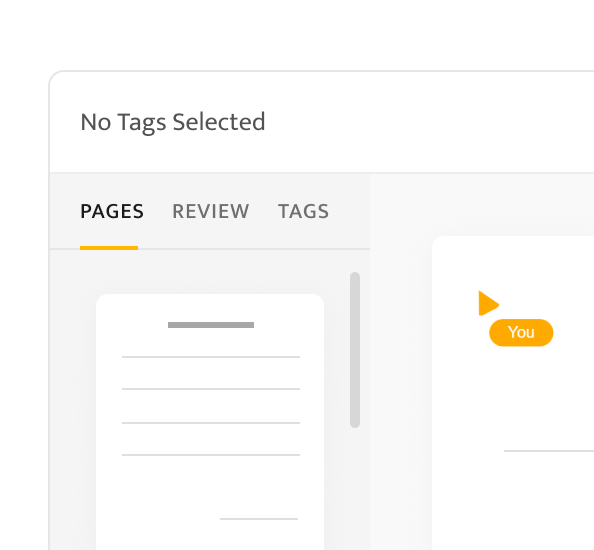
Real-Time Collaboration
Communicate with your customers, verify identities and sign documents in real time.
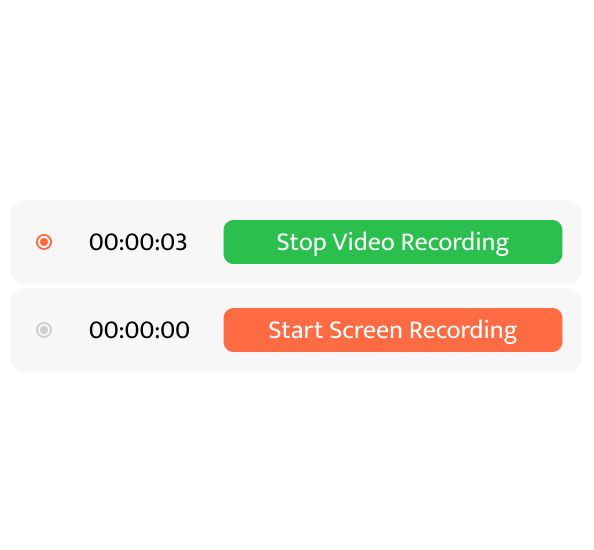
Video & Screen Recording
Secure video recording and full screen recording features are included and available for every transaction.

White Labelled Platform
Instantly change your platform colors and logo to better represent your brand when working with your customers.
Included Features
Founded in 2018, ProNotary is the leading Remote Online Notarization (RON) solution for both signing services and businesses.
Document Tagging
Apply custom and dynamic tags onto each document for eSigning.
Transaction Details
Access the details of any of your previous transaction on-demand.
Auto Sign-On Links
Signers can automatically login using secure sign-on links.
Team Collaboration
Invite and collaborate with your team of notaries across the US.
Video Recording
Record each signer and the entire screen for each transaction.
Cloud Storage
Transaction data is stored on your own private dedicated server.
Multiple Document Support
Upload and manage multiple PDF documents within a single remote online notarization (RON) transaction. Assign different signers to specific documents, control signing order, and keep everything organized so your internal notaries can complete complex packages in one streamlined workflow.
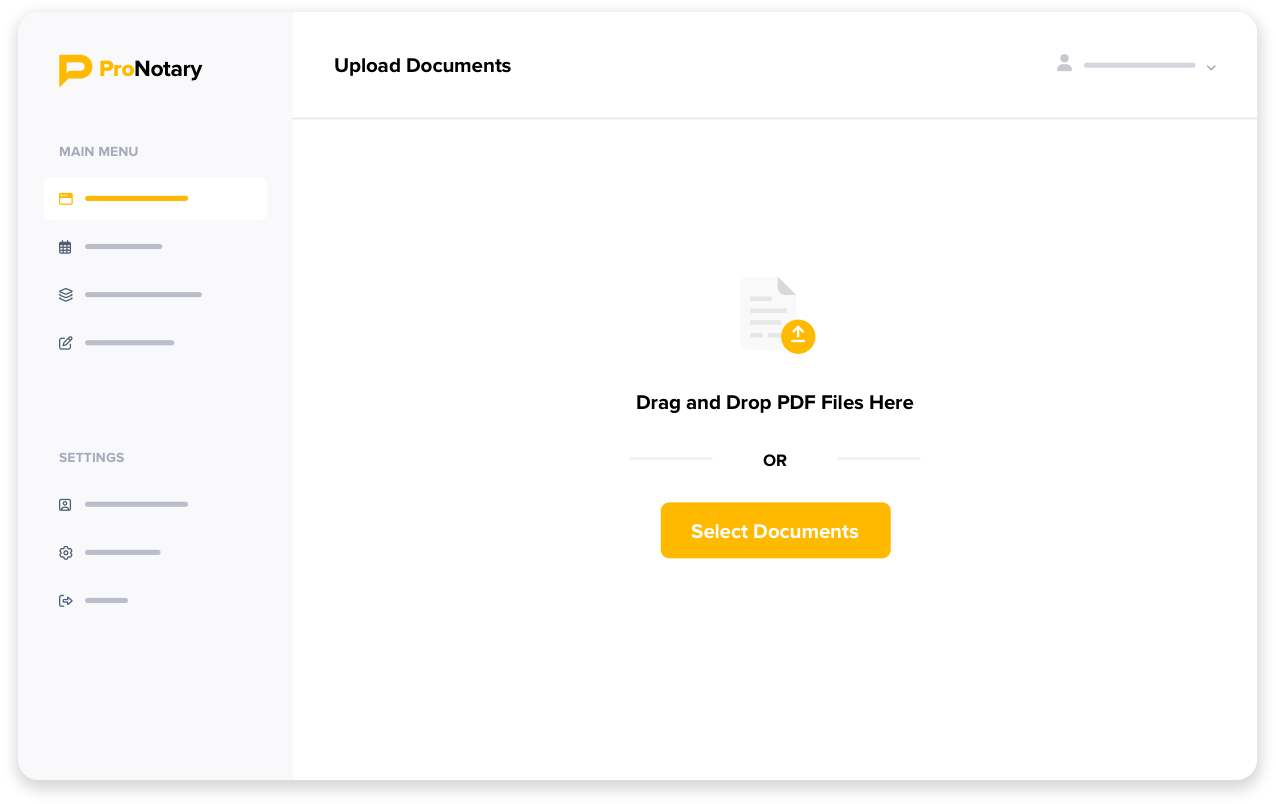
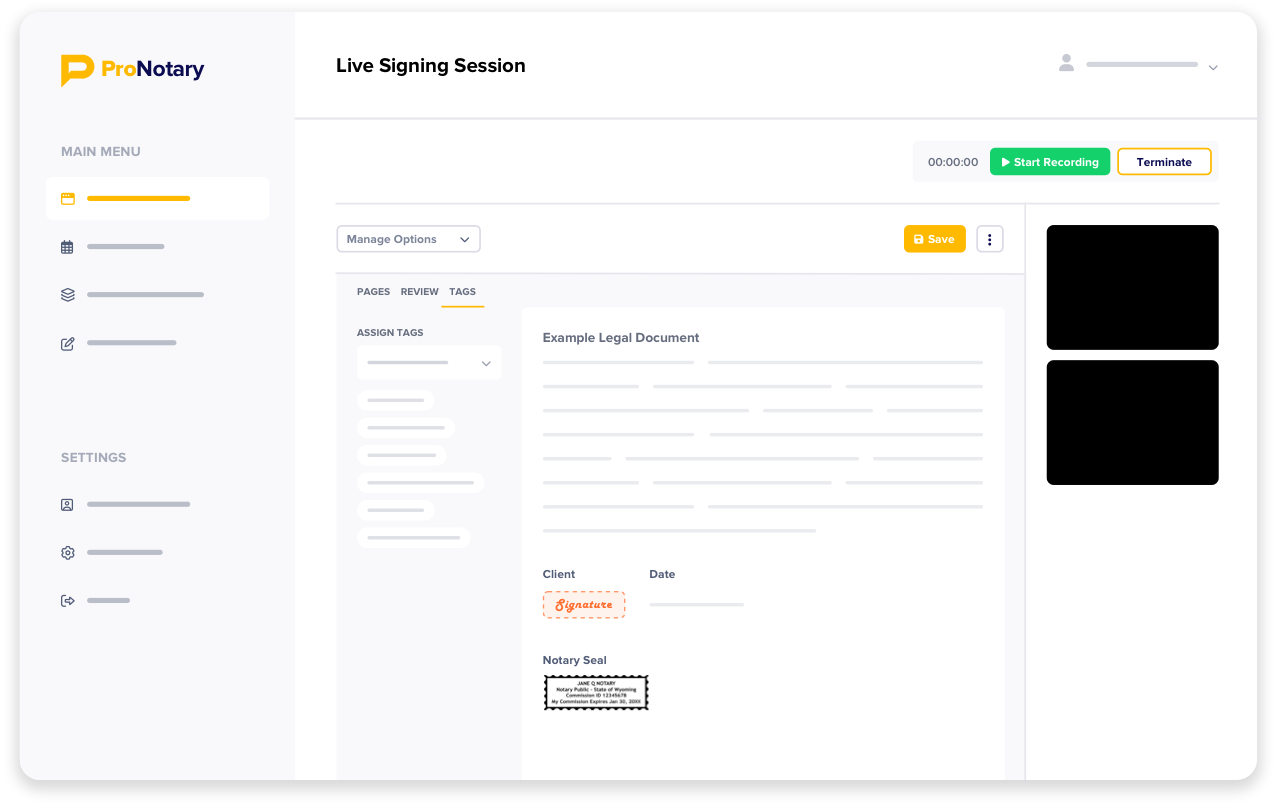
Live Signing Session Experience
Give your notaries everything they need to run a compliant live RON session in one browser-based workspace. Collaborate with signers in real time using shared document viewing, tagging tools, recording controls and session management features that keep every signing organized, auditable and secure.
Identity Verification for Signers
Protect your business and your customers with built-in identity verification tools for each signer. Configure knowledge-based authentication (KBA), credential analysis and biometric checks to confirm signer identity before and during the session, helping your organization meet RON and KYC requirements without leaving the platform.
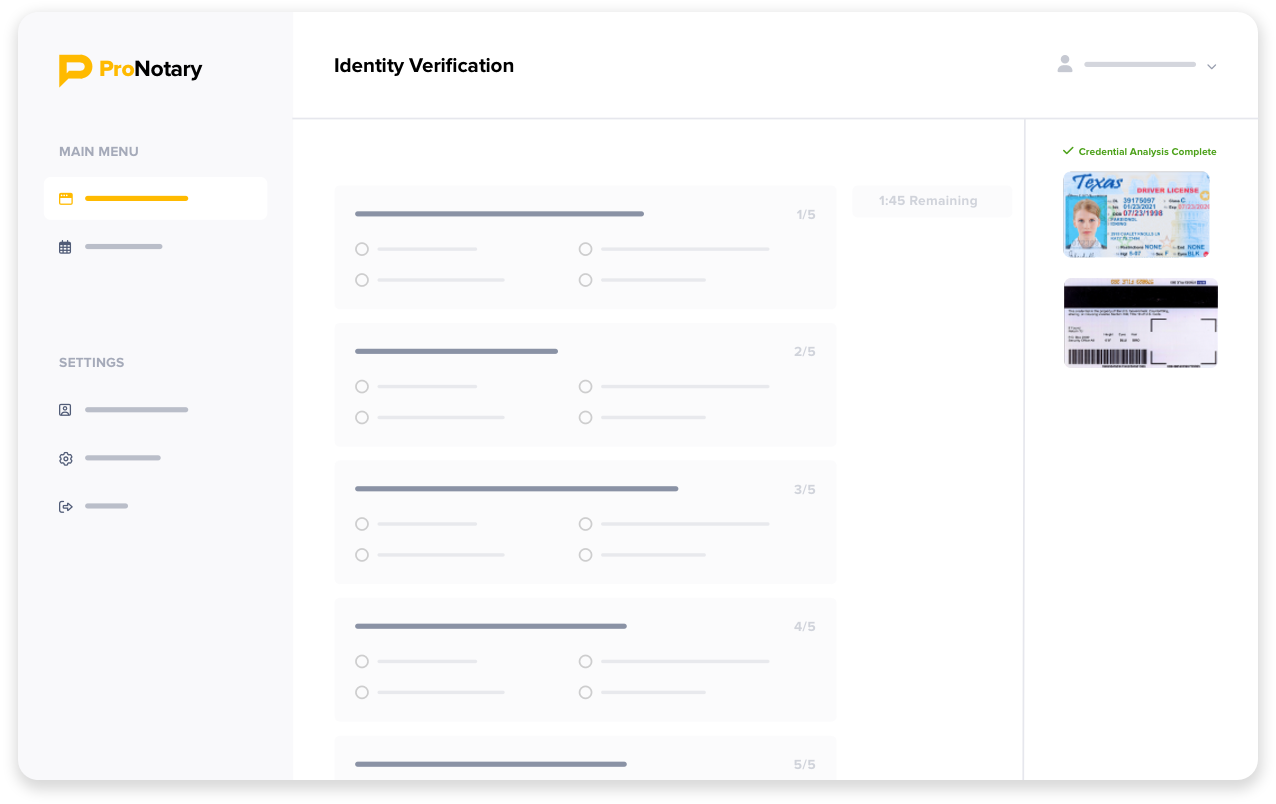
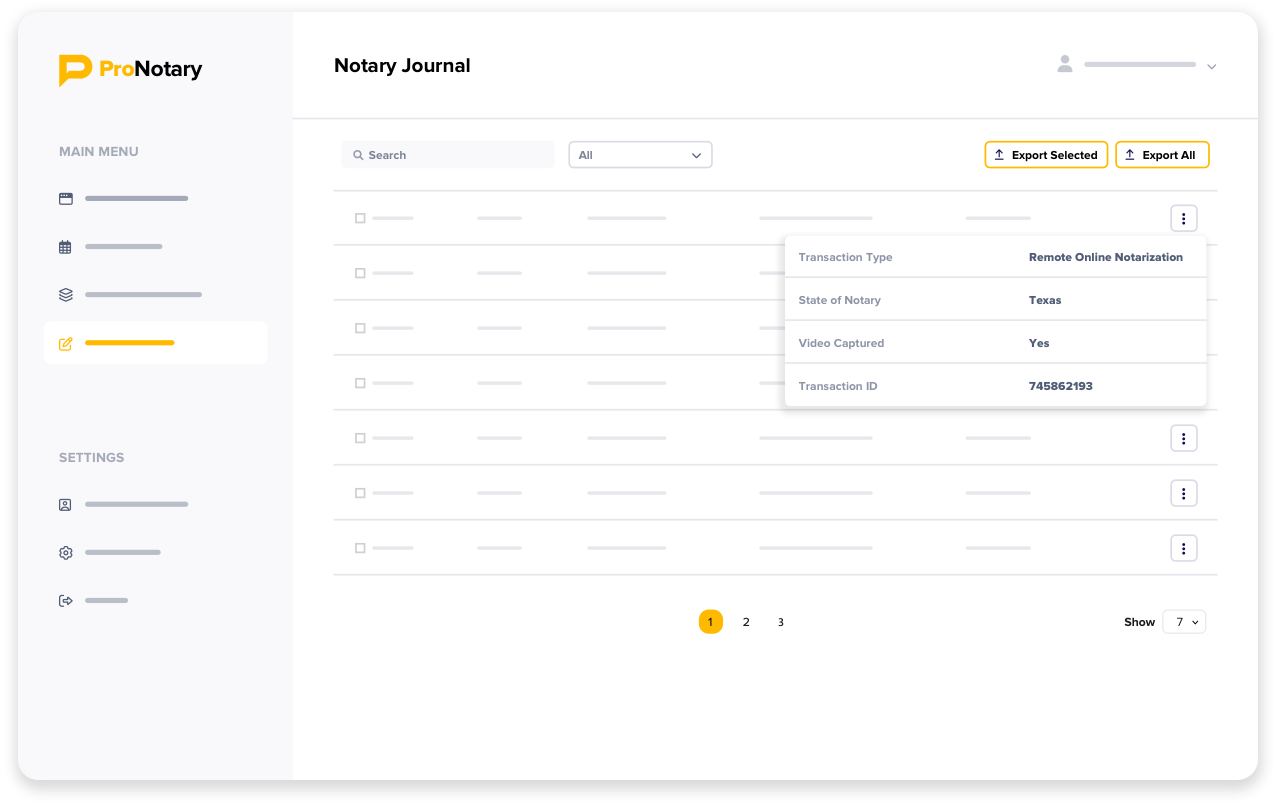
Electronic Notary Journal
Automatically capture a complete electronic notary journal for every RON transaction completed on your platform. Export records when needed and maintain a clear, auditable history that supports your internal policies and state-specific record keeping requirements.
Notary Queue & Assignment
Manage a pool of notaries across your organization or signing service with a built-in notary queue. Push new transactions to the queue, let available notaries claim work in real time, or assign transactions directly based on state, schedule or specialty so every signer is matched with the right notary fast.
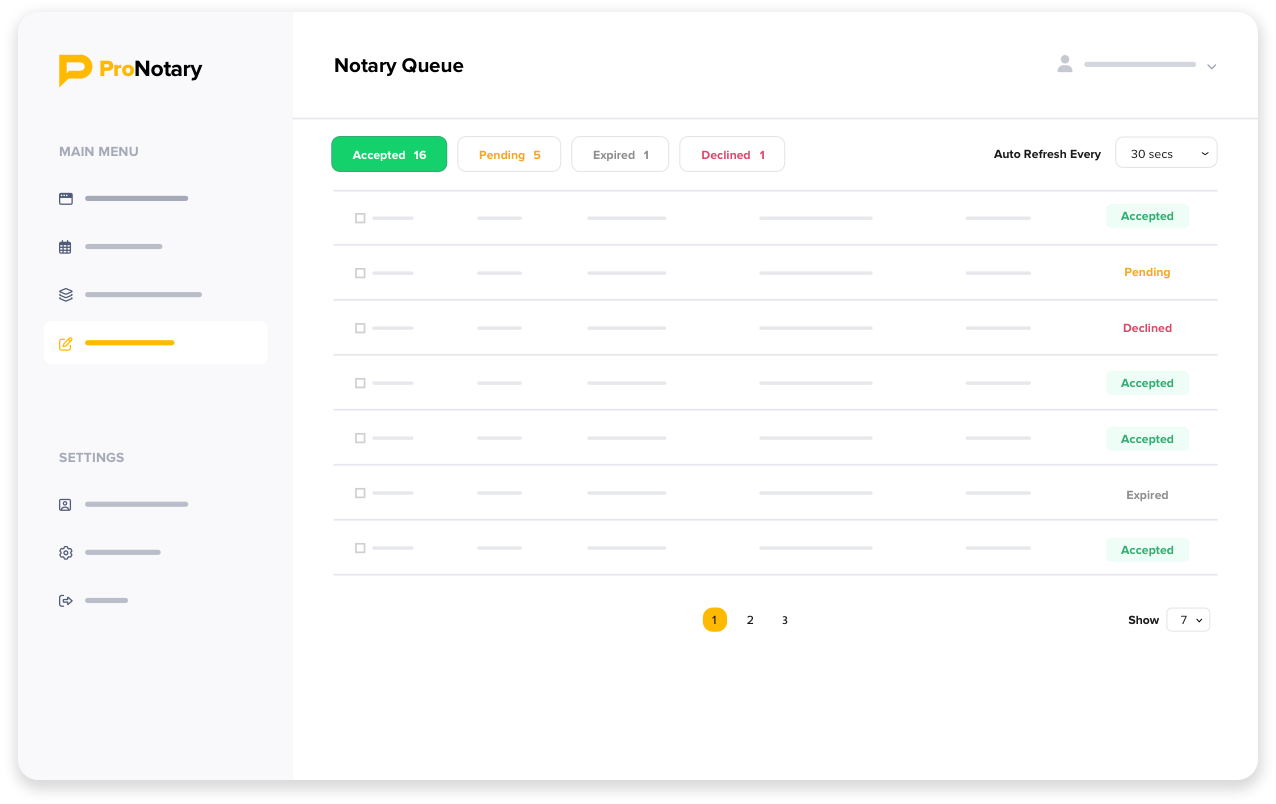
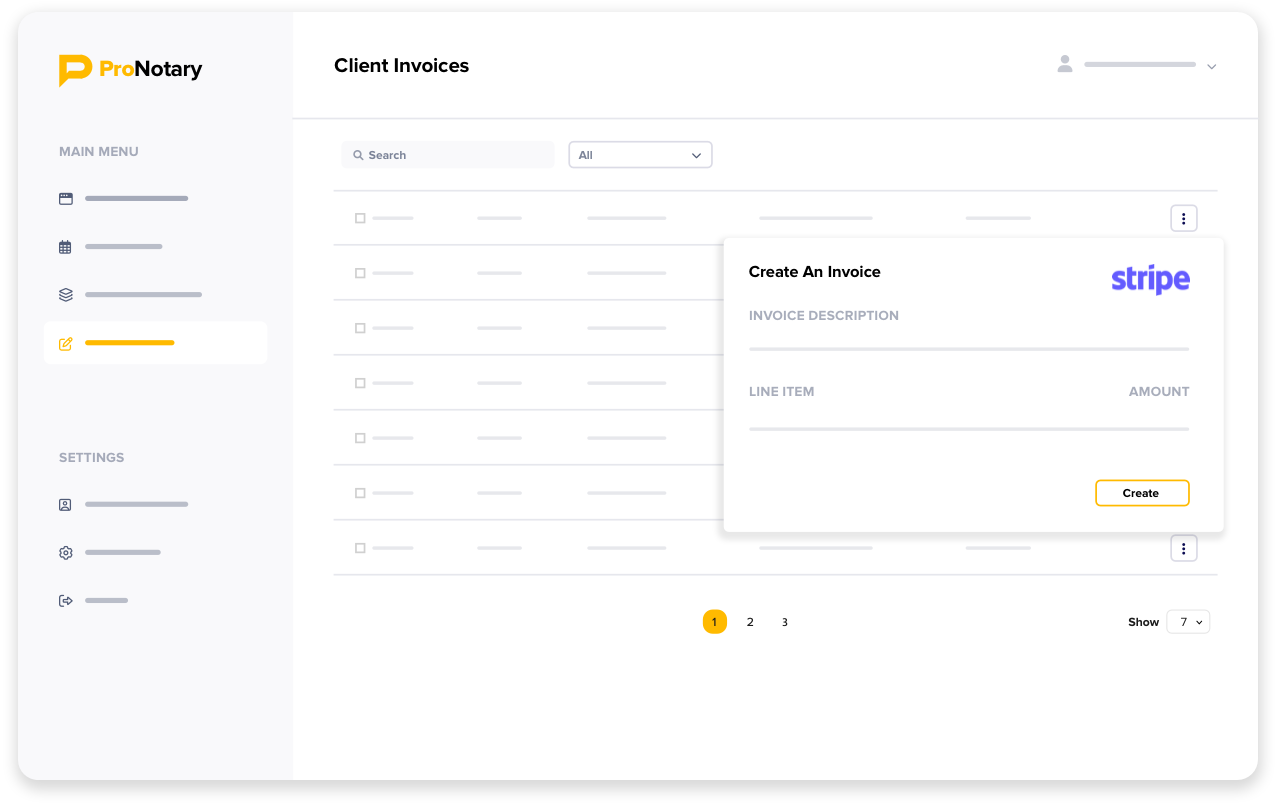
Client Invoicing with Stripe
Connect your own Stripe account to invoice clients for RON transactions directly from the platform. Send invoices before or after a session, track line items and payment status and route funds straight to your business. No revenue sharing or third-party collections so you stay in full control of your billing and customer relationships.
Pricing
Independent & Small Business
For independent notaries and small teams Custom Pricing Please contact sales for details-
Monthly user license fee + flat rate per signer
-
1-5 notary user licenses
-
Secure cloud hosting
-
Business-hours support with priority assistance
-
State RON compliant, MISMO RON certified
-
API access, white-labeling and integrations optional
Enterprise
Designed for medium to large organizations Custom Pricing Please contact sales for details-
Flat rate per transaction
-
Unlimited notary user licenses
-
Secure cloud hosting
-
24/7/365 premium support with priority assistance
-
State RON compliant, SOC 2 & MISMO RON certified
-
API access, white-labeling and integrations included
What is ProNotary?
ProNotary is a fully managed software solution designed for notaries to perform remote online notarizations (RON) with their clients. Our platform provides the tools and technology needed to perform secure and legally compliant notarizations online.
How does ProNotary work for notaries?
ProNotary offers a comprehensive suite of tools for notaries, including identity verification, e-signature capabilities and secure audio-visual technology.
Is your software legally compliant?
Yes, our software is designed to meet all the legal requirements for RON in various states and jurisdictions within the United States.
What are the system requirements?
ProNotary's web-based software is supported on Chrome, Firefox and Edge. A desktop or laptop with a webcam is recommended for all users and required for notaries. Signers may utilize a mobile device (iPhone through Safari) in order to connect to a live signing session.
I'm a notary, how can I get started?
Getting started with ProNotary is simple. Contact our sales team to sign up, complete the necessary onboarding process and start using our platform to conduct remote notarizations on-demand.
Get Started
Start notarizing documents online today!
Contact Us
Please contact us by filling out the form below and one of our experts will reach out to you as soon as possible.
Blog
Latest ProNotary News and Articles
ProNotary Now Approved for Remote Online Notarization in Indiana
We’re excited to announce that ProNotary is now officially approved to support Remote Online Notarization (RON) in the State of Indiana. This approval represents a major milestone in our mission to provide secure, compliant, and modern notarization technology for law…
New Mexico Officially Approves ProNotary as a Remote Online Notarization Provider
ProNotary is proud to announce its official approval as a state-authorized Remote Online Notarization (RON) provider in New Mexico. This recognition marks a significant milestone for both New Mexico notaries and the businesses and individuals they serve. With this approval,…
Boost Law Firm Efficiency with Remote Online Notary Software
In today’s fast-paced legal world, efficiency is key. Law firms are constantly seeking ways to streamline operations. Remote online notary software offers a modern solution. This technology allows notaries to perform their duties online. It eliminates the need for in-person…